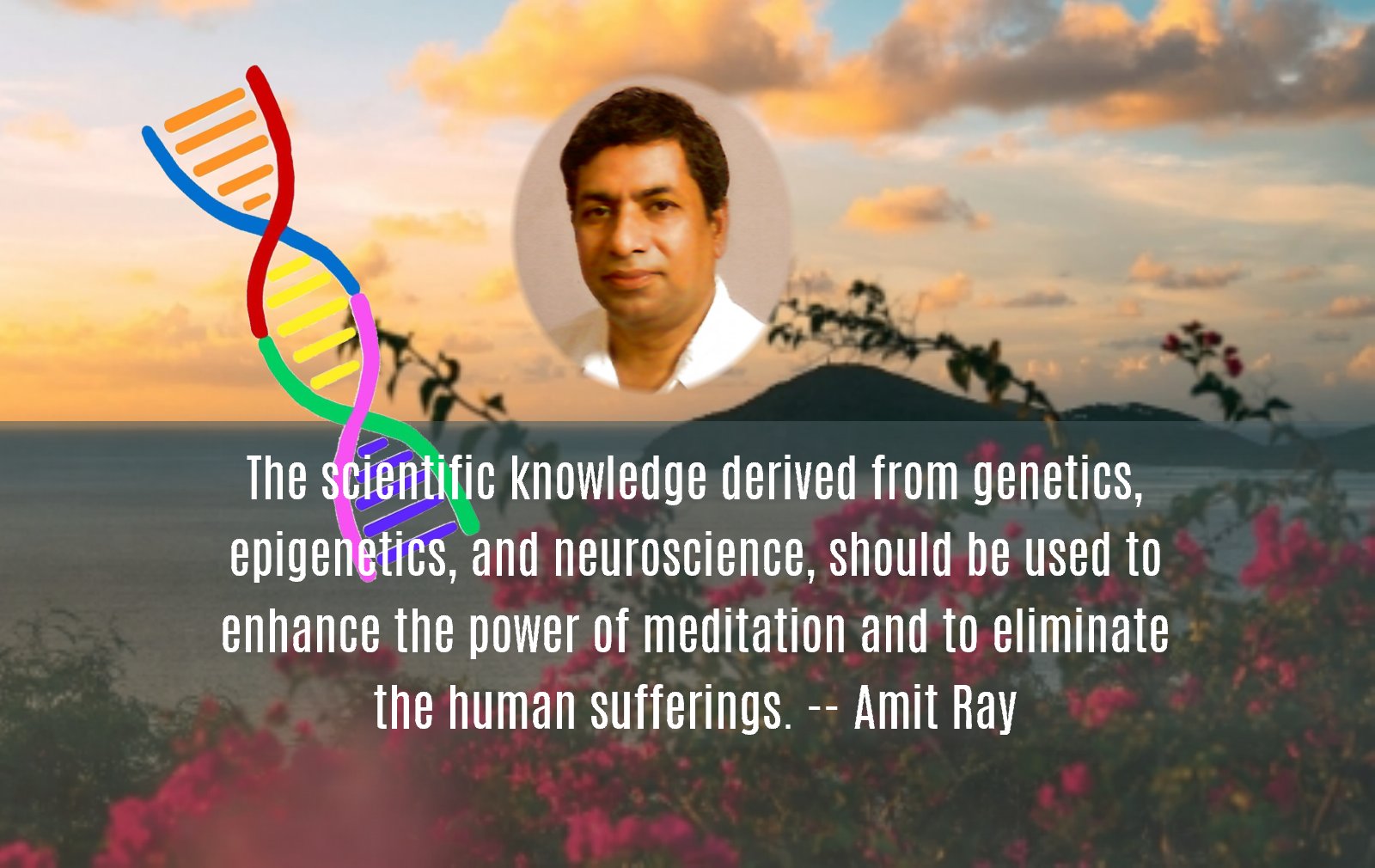Meditation Exosomes and Immune response | Amit Ray Teachings

Dr Amit Ray invented seven protocols of personalized meditation techniques. These protocols are known as Neuro-Epigenetic Scientific Meditation (NESM). They are driven by genetic information, lifestyle practices and meditation techniques. Exosomes are associated with one such protocol of personalized meditation technique. Exosomes plays a critical role in psychological healing disorders. Exosomes are secreted from cells. They play essential roles in cell-to-cell communication. Recent research confirms that exosomes are the indispensable vehicle to transfer genetic information and they are the key players in regulating the processes of inflammation and immunity.
Psychological disorders are mostly due to maladaptive learning. The basis is that all behavior is learned; conditioning learning is the grounds of all abnormal behavior. Hence, the individual has to learn the correct or acceptable performance. Neural connections that generate and support mental functions are formed throughout life. These connections enable life-long learning of new concepts and skills. The genetic and epigenetic assistance to psychological aspects related to learning processes. The process of neuronal plasticity is the cellular basis of learning. Moreover, the dynamic and abrupt nature of neural connections during mental disorders are related to exosomes dysfunctions.
“The human genome is made up of some 20,300 genes. Out of which 736 genes are associated with temperament, a total of 709 related to general cognitive functions, 148 genes are related to higher cognitive functions and 48 genes are associated with deep meditation and 8 genes are related to witnessing consciousness.” – Amit Ray
Exosomes are initially proposed as cellular waste resulting from cell damage, or by-products of cell homeostasis. It is only newly found that these extracellular vesicles are functional vehicles that carry a complex cargo of proteins, lipids, and nucleic acids. Exosomes are 30-120 nm membrane-derived vesicles present in many and perhaps all bodily fluids. They represent a novel mode of intercellular communication, which may play a significant role in many cellular processes, and immune response. They are found in abundance in body fluids including blood, urine, saliva, milk, semen, bile juice, ascites, cystic, bronchoalveolar and gastrointestinal lavage fluid. Recent advances in the research on personalized meditation and exosomes show huge promises for treating psychological disorders. Regulating the crosstalk between exosome and autophagy is crucial for mental disorder, inflammation and immunity. Autophagy serves to remove the damaged cells.
The immune system rapidly responds to any foreign and unwanted change in the tissues, leading to the recruitment of immune cells and several other inflammatory mediators. Inflammation is a protective measure to combat primarily injury and infection. Inflammation is a cleaning process of invading elements and noxious changes leading to the maintenance of homeostasis. However, inflammation is nature’s double-edged sword. Chronic inflammation leads to several life-threatening diseases. For millions of patients worldwide, with disorders such as arthritis, sinusitis, bronchitis, fibrocystic breast disease and carpal tunnel syndrome, the inflammation does not go away. World knows the deadly side-effects of steroids and non-steroidal anti-inflammatory drugs – millions are suffering out of that. However, meditation with serratiopeptidase biomarker are very effective and most promising way to combat chronic inflammation. Serratiopeptidase is a protein enzyme found in silkworms. Studies of various combinations of meditation with serratiopeptidase biomarker notices the changes in exosomes and their long-term healing effects.
“The scientific knowledge derived from genetics, epigenetics, and neuroscience, should be used to enhance the power of meditation and to eliminate the sufferings of humanity.” — Amit Ray